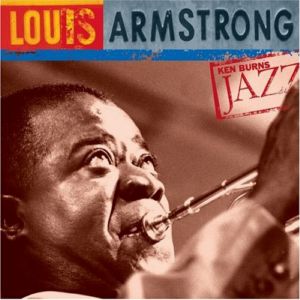
- Format: MP3

In conjunction with the release of Ken Burns' ten-part, 19-hour epic PBS documentary Jazz, Columbia issued 22 single-disc compilations devoted to jazz's most significant artists, as well as a five-disc historical summary. Since the individual compilations attempt to present balanced overviews of each artist's career, tracks from multiple labels have thankfully been licensed where appropriate. Louis Armstrong is arguably the most important figure in jazz history -- he was jazz's first real virtuoso and first true improviser; he invented scat singing; and his gravelly, instantly recognizable voice and larger-than-life personality made him a crucial force in popularizing the music. Over the course of 25 tracks, this installment of Ken Burns Jazz traces Armstrong's career from his seminal early sides up through his pop hits of the '50s and early '60s. The set opens with selections from his recordings with the Hot Fives and Hot Sevens, some of the most celebrated in jazz thanks to Armstrong's jubilant, impeccably constructed solos. His later pop material isn't as interesting to some jazz purists -- especially since it doesn't always emphasize his instrumental work -- but it went a long way toward cementing Armstrong's status as an icon among the general public and is full of his warmly ingratiating personality. Ken Burns Jazz features the best of the best from both distinct phases of Armstrong's career, and while there are more extensive (and cohesive) compilations of each, this makes for an extremely strong introduction to one of the greatest figures in American music.